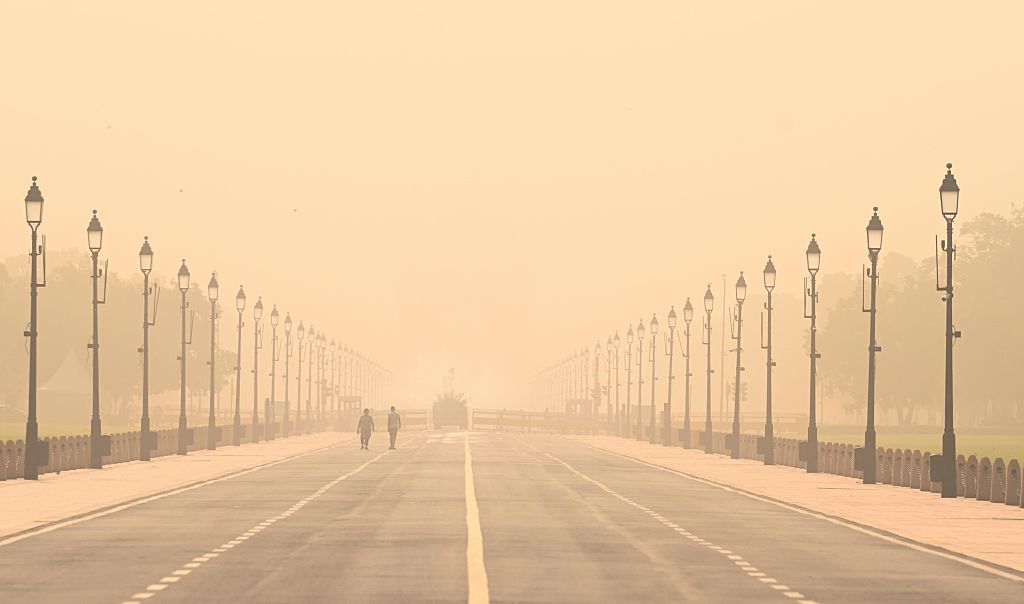The Commission for Air Quality Management (CAQM) in the National Capital Region (NCR) and adjoining areas has invoked Stage-I of the Graded Response Action Plan (GRAP) with immediate effect on Friday, following a noticeable deterioration in air quality over the past two days. The decision was taken during a meeting of the Sub-Committee on GRAP held on May 16, after a sudden spike in the Air Quality Index (AQI) was recorded, primarily attributed to the long-range transport of dust and strong surface winds.
Delhi’s average AQI stood at 278 on May 16, placing it in the ‘Poor’ category, according to the Central Pollution Control Board (CPCB). This marked a marginal increase from the previous day, despite forecasts predicting improvement. Based on current IMD and IITM forecasts, the air quality is expected to remain in the lower range of the ‘Poor’ category on May 17 as well.
In response, CAQM has directed the immediate implementation of all measures outlined under Stage-I of the GRAP across the entire NCR. These actions aim to prevent any further degradation of air quality and will be enforced and monitored by all concerned agencies. The commission has urged the public to cooperate and strictly follow the Citizen Charter associated with Stage-I.
Among the key advisories for citizens are maintaining properly tuned vehicles, ensuring up-to-date Pollution Under Control (PUC) certificates, avoiding vehicle idling at traffic lights, refraining from the use of old diesel or petrol vehicles beyond 10–15 years, and using eco-friendly alternatives during festivities. People are also encouraged to report polluting activities via mobile apps such as the 311 App, Green Delhi App, and SAMEER App.
The 27-point action plan under Stage-I includes stringent dust mitigation at construction and demolition sites, regular lifting of municipal and hazardous waste, increased mechanized road sweeping, intensified use of anti-smog guns and water sprinkling, and strict enforcement of pollution norms across industries and vehicular traffic. Notably, all construction projects on plots of 500 square metres or more must be registered on the relevant state portals and comply with dust mitigation rules.
Agencies have also been directed to stop illegal waste dumping, enforce emission standards in thermal power plants, prohibit the use of diesel generators as regular power sources, and ensure only clean fuels are used in eateries. Additional measures involve minimizing power cuts, managing traffic congestion, discouraging the use of firecrackers, and encouraging collective commuting among office-goers.
Information dissemination will be stepped up through bulk SMS, social media, and mobile apps to keep citizens informed about pollution levels, complaint redressal mechanisms, and government actions.
CAQM has assured that it will continue to closely monitor the air quality in the region and take further decisions based on upcoming forecasts and ground-level implementation of the prescribed measures.














